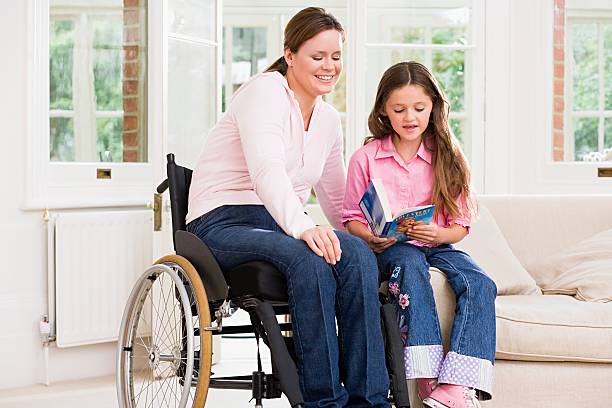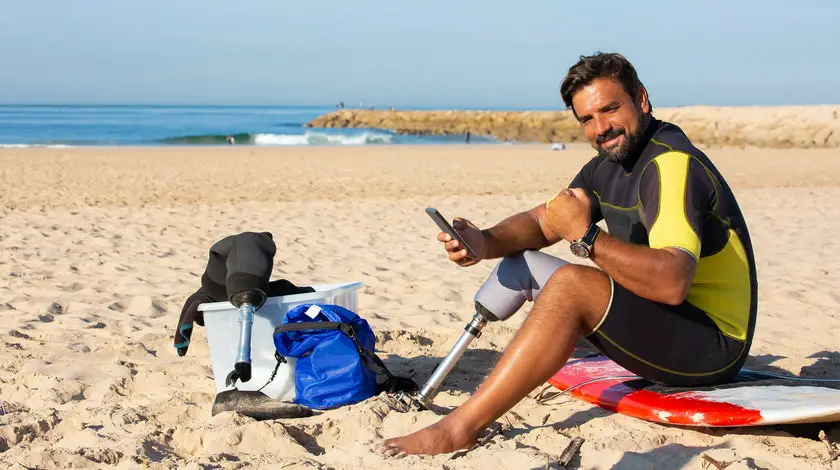Foster parenting, just like biological parenting, entails a lot.
It requires your financial, physical, and emotional strength. In a society where we have children with deceased parents or parents who cannot take care of them, people are encouraged to adopt if they have the resources.
People still hoping to bear their biological children are also encouraged to adopt a child (or more).
You may be wondering if, as a disabled person, the law also permits you to be a foster parent.
Fostering a child as a disabled person is possible. Although, there are many considerations to put in place before a foster home or biological parent hands over a child to you. A test will be carried out to ascertain if your disability can handle the child’s needs.
Not all disabilities hinder a disabled person from taking care of a child. At the same time, not all children have the same needs. There must be a balance between the foster parent’s ability and the child’s needs to be considered eligible to adopt the child.
Also, when you’re being evaluated on your ability to foster a child, you’re expected to be completely honest. This process is not a way of discouraging you from fostering a child.
On the contrary, being honest helps the foster home identify the child you can cater to. The law gives people with disabilities the right to foster children, provided they can meet their needs.
Table of Contents
- Factors to Consider when Adopting a Child
- Tips on Easy Foster Parenting as a Person Living with a Disability
Factors to Consider when Adopting a Child

There are three factors to put in check when considering fostering a child. They could be part of the assessment process of adopting the child. These factors are your mental health, financial capability, and physical strength.
Recommended: Choosing Disabled Clothing for Wheelchair Users (Complete Guide)
1) Your Mental Health
Having certain disabilities may have put you in some form of mental stress. Dealing with medications, coping with your job, and keeping up with the house chores can be tiring.
You just wish to have enough time for yourself sometimes. Ironically, having a child (or children) around you might relieve you of the stress and worries you might be dealing with. So have in mind that fostering a child might either improve or worsen your mental health.
It’s also possible you might have a mental disorder, probably one caused by your disability. This disorder can cause you to flare up or show aggression at a slight provocation. Fostering a child in such a condition might not be best for the child.
Furthermore, you must factor in how the responsibilities of fostering will affect your daily routine. You may consider employing the services of a nanny if the workload will be too much for you. Or you may choose to adopt kids that have grown past toddling stage and become a little independent in taking care of themselves.
It’s only after an honest evaluation of your mental health that you can decide if you can become a foster parent.
2) Your Physical Strength
Coordinating the activities of kids can be energy draining. Yet, you have to be up to the task, from getting them prepared for school every morning to ensuring they play safely when at home.
While such tasks may be considered normal for every parent, they might cause you more fatigue, pain, dizziness, and weakness as a disabled.
However, lacking physical strength as a disabled person isn’t a barrier to fostering a child. Being aware of your strength limit should help you determine the age range of kids you should adopt. It’s advisable you do not adopt a child requiring much attention.
You might also want to get extra help from a nanny or a relative.
Recommended: Best Disabled Cabins on Cruise Ships
3) Your Financial Capability
The financial capability of an intending foster parent (whether disabled or not) is very important when adopting a child. However, people with disabilities are limited to certain kinds of jobs, limiting their finances. Your monthly expenses might also be on the high side due to medications and therapies. You may also have to spend more hiring a nanny for the foster child. All these expenses can put a strain on an average income earner.
You must check your financial capability and decide if you can provide for the needs of a foster child. Having a passive source of income will be a plus for you. You won’t have to subject yourself to more stress to care for your foster child.
Tips on Easy Foster Parenting as a Person Living with a Disability
After going through the process of adopting a child, you will definitely need tips on how to manage your home. Below are some tips that will help you.

1) Rearrange Your Home
If it’s your first time parenting a child in your home, you should adjust the arrangement of your home furniture and appliances. The aim is to make your home conducive for a child to live in. Create barriers that will keep your child from wandering away from home. Reposition or keep within reach items you will more often, including your child’s toiletries, clothing, snacks, flasks, and cutleries.
2) Seek Assistance
At the early stage of parenting, you should seek your friends and family assistance. They will help you adjust to your new home. You can also seek the services of a nanny to assist you.
Recommended: Who Can Park in Handicapped Spaces? (Answered)
3) Join an Online Community
There are tendencies to run into challenges at the early stage of your parenting. You might want to know how other foster parents like you are overcoming similar challenges you are facing. There are many online communities on various social media platforms you can join to get other peoples’ experiences.
4) Learn How to Communicate with Your Child
If you have hearing, speech, or a visual impairment, you have to make your child get used to your mode of communication. If possible, upgrade your communication and mobility aids. Effective communication is important in building a good relationship with your foster child.




